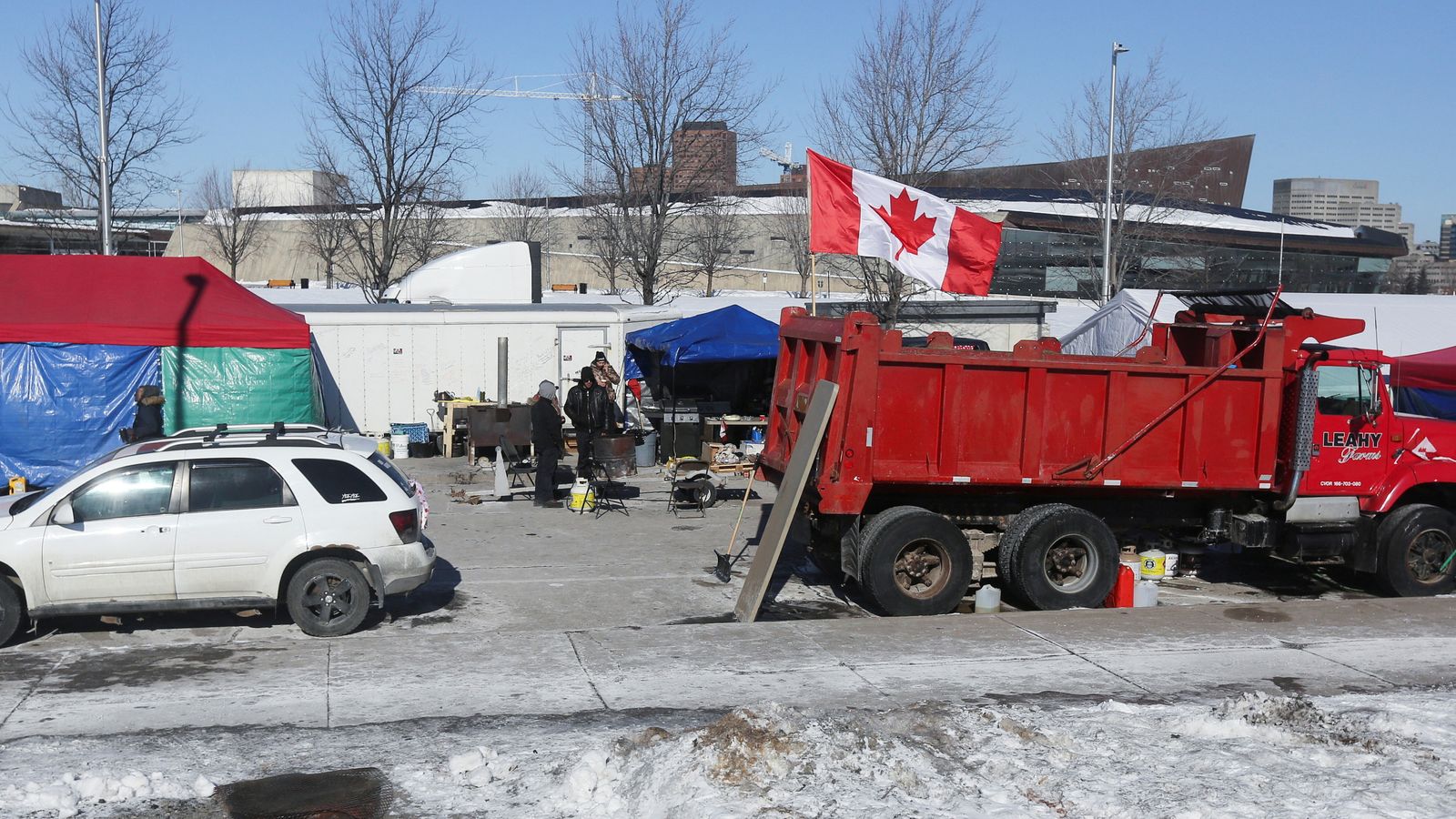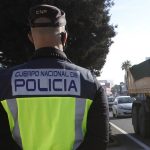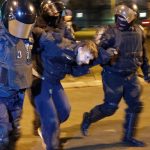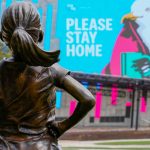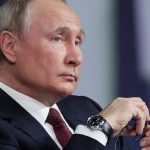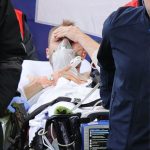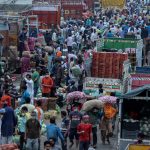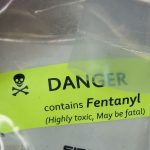Canada’s Prime Minister Justin Trudeau has invoked special measures to tackle the Freedom Convoy of truckers who have shut down parts of the country for weeks, but says he won’t be calling on the military.
Despite opposition from leaders in the provinces, the prime minister announced on Monday that he would invoke the 1988 Emergencies Act, which allows the government to override the provinces and authorise temporary measures to ensure security.
“The blockades are harming our economy and endangering public safety,” Mr Trudeau told a news conference. “We cannot and will not allow illegal and dangerous activities to continue.”
Invoking the special powers act is a last resort, he added.
Please use Chrome browser for a more accessible video player
The Freedom Convoy started almost three weeks ago and the truckers have shut down border crossings, paralysed the capital of Ottawa and inspired similar demonstrations around the globe.
The act has only been used once in peacetime – by Mr Trudeau’s father, Pierre Trudeau, during the October Crisis in 1970.
The special law allows the government to deploy the military, but the prime minister will not call on the army.
Traffic restrictions imposed in Brussels to try and stop Canada trucker-inspired protest
Freedom Convoy: Canadian police clear ‘Freedom Convoy’ protests blocking US border route – with bridge to reopen
Freedom Convoy protests: Blockade eases on vital US-Canada bridge – but crowds swell in Ottawa
The heads of Alberta, Manitoba and Saskatchewan all apposed opposed the move.
Earlier on Monday, Canadian police have broken up a group that was allegedly ready to use violence to defend the Freedom Convoy near the US border.
The Royal Canadian Mounted Police in Alberta said it had arrested 11 people and seized 13 long guns, as well as handguns and a large quantity of ammunition.
Those arrested were reported to have a “willingness to use force against the police if any attempts were made to disrupt the blockade”, the force said.
Read more:
Why are Canadian truckers protesting and where else is their action affecting outside Ottawa?
Festival vibes as protests cripple Canada’s capital – but this is no party for defiant demonstrators
From a loosely organised convoy of truckers to a resistance movement
It comes after the blockade of one of North America’s busiest trade corridors in Windsor, Ontario, ended on Sunday after six days.
The demonstrations also shut down smaller crossings in Alberta and Manitoba last week, as well as the Pacific Highway border in British Colombia over the weekend.
The blockade disrupted the supply chain for Detroit carmakers, forcing Ford, General Motors and Toyota to cut production.
Protests in Ottawa have entered a third week with several trucks parked outside the prime minister’s downtown office.
Police in the city say they do not have enough officers and have largely stood by and watched the protests, causing fury among many residents and businesses.
The protests started over Canada’s COVID measures and demonstrators in Ottawa have refused to leave despite pleas from local, provincial and federal leaders.
Ontario, the province at the centre of the protests, announced on Monday that it would accelerate dropping COVID restrictions, becoming the latest region to do so.
Its premier, Doug Ford, said the Omicron wave was fading.
“Given how well Ontario has done in the Omicron wave we are able to fast track our reopening plan,” he said.
The province will lift capacity limits on restaurants and businesses from Thursday and vaccine mandates will be dropped on 1 March if infections continue to go down.
Mask rules will be kept in place for now.
